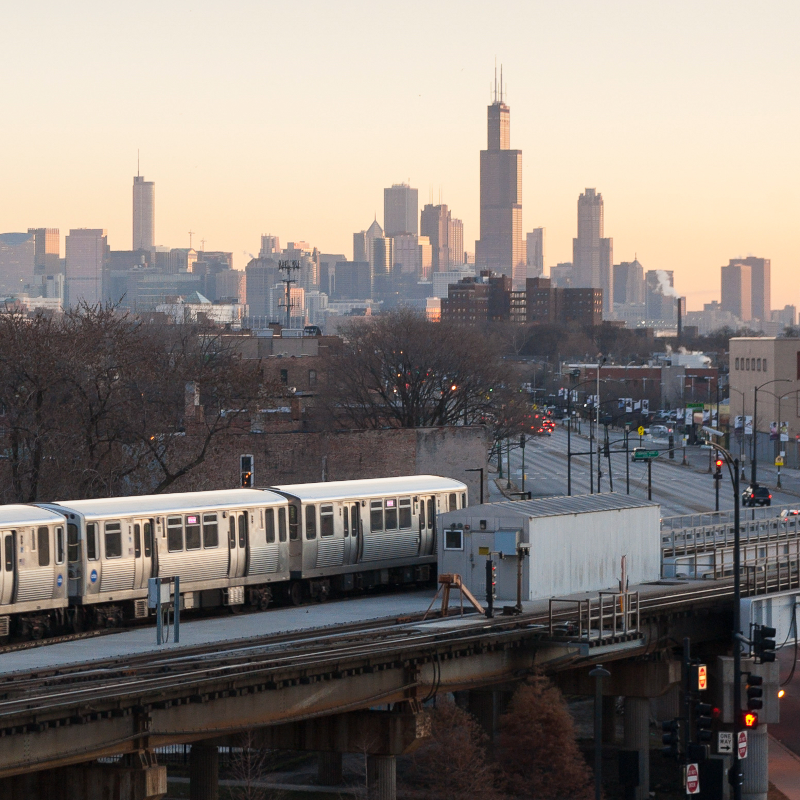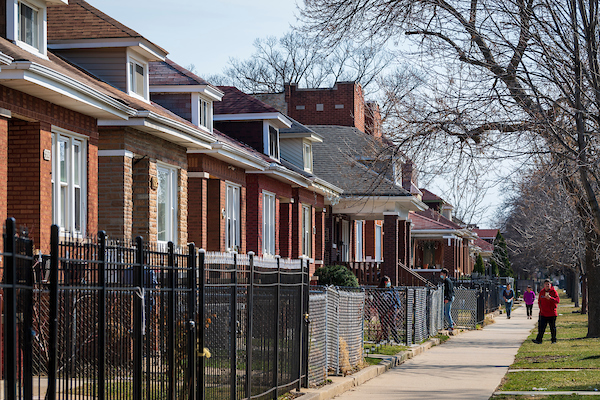OVP Programs & Services

OVP Programs & Services
The Office of Violence Prevention (OVP) works to reduce the likelihood of violence related injury and death and support trauma recover and healing across Chicago communities. The OVP focuses on:
- Teaching - through violence prevention community education workshops and professional development training
- Strengthening Systems - working with national, state, city and community groups to apply a violence prevention lens to the work they do
- Reaching Community Partners - EVERYONE has a role to play in violence prevention!
OVPBH creates community partnerships with delegate agencies.
Download a list of our current delegate partners.
Bullying and Suicide Prevention
This initiative supports the Chicago Collaborative of Bullying and Suicide Prevention (CCBSP), convened quarterly to raise awareness about local resources and preferred evidence-based interventions along with offering training on prevention and intervention supports.
Bullying
Nationwide surveys of 6th through 10th graders conducted by the national institute of Child Health and Human Development revealed that 17% of children are bullied sometimes or weekly, and 19% bully others sometimes or weekly. (Ericson, OJJDP Fact Sheet, U.S. Department of Justice, Office of Juvenile Justice and Delinquency Prevention)
Bullying is categorized by the following three criteria:
- It is aggressive behavior or intentional harm doing
- It is carried out repeatedly and over time
- It occurs within an interpersonal relationship characterized by imbalance of power
Resources
Suicide
Suicide occurs when a person ends their life. It is the 10th leading cause of death among Americans. Suicide is recognized as a chronic epidemic, despite the overwhelming numbers, the tragedy of suicide is hidden by stigma, myth and shame. Mental health disorders are real, common and treatable.
Resources
- CDPH Mental Health Report: Trends on Suicide-Related Events, Chicago, 2016-2020
- Now Matters Now - Skills and Support for Coping with Suicidal Thoughts
- Zero Suicide Toolkit
Helplines
- National Alliance for Mental Illness-Chicago (NAMI Chicago) Helpline Phone: 312.563.0445 (trained counselors available M-F, 9 am – 5 pm)
- National Suicide Prevention Lifeline Phone: 1.800.273.8255 (trained counselors available 24 hours a day/7 days a week)
- Illinois Warm Line Phone: 1.866.359.7953
Chicago Torture Justice Center (CTJC)
Chicago Torture Justice Center (CTJC), located in Englewood on the south-side of Chicago, seeks to address the traumas of police violence and institutionalized racism through access to healing and wellness services, trauma-informed resources, and community connection.
The CTJC engages its work through four key clinical approaches:
- Nested Theory of Conflict
- Trauma Informed Care
- Psychosocial Accompaniment
- Harm Reduction
CTJC Services
Clinical Services
Individual Therapy
Family Therapy
Group Therapy
Wellness-Oriented Services
Trauma Reducing Bookclub
Somatic Therapies
(mindfulness, acupuncture)
Self-Expression Creative Writing
Supportive Services
Case Management
Court Accompaniment
Referrals
These services are provided to victims (individuals and their families) of police torture and other residents who report being traumatized by law enforcement actions.
Gender-Based Violence
Current Efforts to Address GBV at CDPH
The Chicago Department of Public Health (CDPH) addresses gender-based violence (GBV) in many of our bureaus, programs, and offices. This focus is integral to our approach that centers around our four principles (trauma-informed, health equity, cultural responsiveness and dismantling racist systems) and our mission: to promote and improve health by engaging residents, communities, and partners in establishing and implementing policies and services that prioritize residents and communities with the greatest need.
Click the image to view at full size.
Screening and Referral
CDPH programs that have direct interactions with clients conduct screening for GBV and provide referrals for services, as needed:
- Family Connects, a nursing home-based visiting program for new parents and babies, includes administration of the Conflict Tactics screening tool, which evaluates violence within intimate relationships. Data are maintained in the Family Connects data system.
- CDPH Mental Health clinics screen their clients for interpersonal safety as part of the client assessments conducted every 6 months.
- Clients of the CDPH WIC (Special Supplemental Nutrition Program for Women, Infant and Children) clinics are screened for home safety and interpersonal violence.
- CDPH funds two Federally Qualified Health Centers to provide health care at homeless shelters, as part of our housing/homelessness initiatives. Their client assessment includes screening and referrals for interpersonal violence, as needed.
Resource Websites
CDPH sponsors websites that provide resources, including information about GBV:
CDPH funds two telephone resource directories, which include resources for people experiencing gender-based violence as part of their menu:
- NAMI-Chicago (National Alliance on Mental Illinois Chicago Helpline #833.626.4244)
- COVID Community Resource Hub (Contact Info #312.746.4835)
Training Resource Links
- Integrating Behavioral Health Approaches to Address Gender, Violence and Homelessness
- Polyvictimization in Later Life
- Racism, Domestic Violence & Black Maternal Mortality - What Can Advocates Do
- Video: The Impact & Treatment of PTSD for Black Women Experiencing Violence
- Video: Reimaging Our Community Responses to Intimate Partner Violence
- Video: Cyberharassment and Cyberstalking
Mental Health Services for Victims of Child Sexual Assault (CSA)
Mental Health Services For Child Survivors Of Sexual Assault (CSA) provides prevention education to families and providers in communities with high levels of investigation and crises involving CSA. The program also provides trauma-informed clinical services to victims of) child sexual assault and their families.
This program aims to increase the availability of mental health services for children and adolescents (ages 17 and under) who are victims of sexual assault in Chicago. Specifically, the program will augment the current evidence-based therapeutic services provided to children and adolescents with the goal of reducing the amount of time it takes to receive mental health services and minimizing waitlists. The PATHH (Providing Access Toward Hope and Healing) Collaboration is a network of 29 providers of evidence-based, trauma informed therapy for children and families impacted by sexual abuse. Through strong partner and funder collaboration, shared resources, coordinated mental health service delivery and advanced training for clinicians through Chicago, PATHH helps ensure that children have access to trauma-informed treatment in a timely manner.
Restorative Practices
The Restorative Practices program funds community facing capacity building training and conflict resolution services using restorative practice principles. This trauma-informed, nonviolent and community-centric approach prevents and/or resolves violence in relationships among friends, renters and landlords, rival street groups, consumers and business owners, and others.
Services for People Who Cause Harm
Services for People Who Cause Harm (PWCH) was launched in 2021 as a part of the city's emerging focus on Gender Based Violence. This program seeks to reduce violence and increase safety for GBV victims by creating innovative pathways to identify, engage and enlist in services, individuals who are actively causing harm to their intimate partner but are untouched by any law enforcement system.
Street Outreach Services
Street Outreach (SO) serves communities that are most impacted by shootings and other lethal interpersonal conflicts in the community. These hyper-local organizations hire, train, supervise and support Outreach and Case Management staff who actively engage high-risk persons who are most likely to be involved in lethal violence. The aims is to mediate emerging conflicts, assist with life and safety focused transitions (work, school or living arrangements) and provide support and encouragement to reduce the threat of violence and trauma. SO provides violence interruptions services in high violence community areas to reduce violence by building connections between individuals, their families, communities, associates and partners (i.e. law enforcement & education institutions).
Trauma Informed Training and Transformation
Historically, the Trauma Informed Transformation Project (TiTP) was an initiative that provided funding opportunities and leveraged capacity building to 6 agencies operating restorative practice/justice programs that engage elementary aged youth in 9 Chicago Public Schools in 2016, OVPBH’s RP programs served 3,701 youth and 1,547 adults (Parents, School Staff and Community members).
Building on this project, the Trauma-Informed (TI) Transformation Program, the Chicago Department of Public Health advocates for and co-leads multiple initiatives that support trauma-informed transformation within CDPH and other organizations (of all types) in Chicago, and across the State of Illinois.
Victim Services
The city’s Trauma Informed Victim Services program works in partnership with currently funded Street Outreach (SO) organizations in communities that are most impacted by gun violence and lethal/non-lethal interpersonal conflicts. The Chicago Department of Public Health supports 11 programs, each serving communities with some of the highest rates of victimization over a three-year period, including victims of:
- Domestic violence
- Gunshot
- Other homicide survivors
Services include:
- Crisis incident response
- Assistance with post-incident coping (funeral planning, crime victims fund application)
- Induction into counseling and recovery support
- Guidance and accompaniment (legal, media)
- Referral(s) to other family specific services
These programs are designed in collaboration with the Mayor’s Office on Violence Reduction which is a community-based investments to reduce violence and promote safety and wellbeing. In many cases, these engagement-focused services are more impactful as complements to traditional law enforcement activities rather than relying on law enforcement, alone. Tandem improvements in community perceptions of police, reductions in crime, and an improved sense of community safety and belonging can be achieved when collaboration among residents, businesses, and other local stakeholders engage in proactive strategies that prevent crime and support healthy and safe communities.





